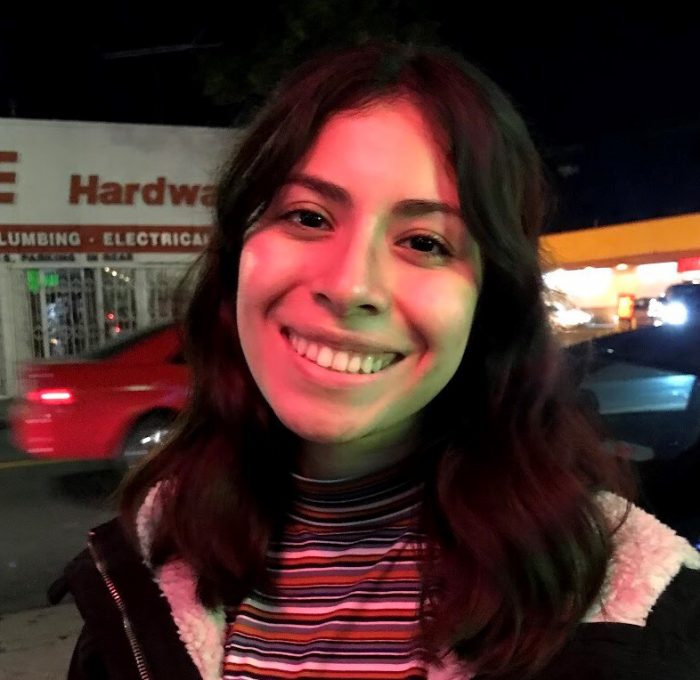Blazing a Path via Interdisciplinary Studies
 For Jackelyn Tejada, the line from architecture to public health passes through Interdisciplinary Studies (INDS) and makes a stop at urban studies for good measure.
For Jackelyn Tejada, the line from architecture to public health passes through Interdisciplinary Studies (INDS) and makes a stop at urban studies for good measure.
This third year INDS student has an almost boundless ambition to improve the lives of others. And during her second year at Woodbury, Jackelyn had a bit of an epiphany. “Although I loved my time in architecture, I had lost sight of the purpose of many of the assignments and what exactly I was gaining from this work,” she recalls. “The reason for studying architecture was to one day use those skills to address the homelessness crisis in a sustainable way. That’s when I took a step back and really analyzed what I was getting out of my education and what skills I’d be equipped with after graduation.”
Jackelyn’s light bulb moment happened during Professor Emily Bills’ “Alternative Housing” class. “I realized that I needed ‘Food and the City’ and courses like it in order to develop better, more sustainable solutions to problems such as homelessness and public health,” she says. “Thankfully, in my second and third year, especially, I was reminded about why I decided to go to college. These urban studies classes didn’t just influence my academic program – they altered my living and consumption habits.”
Likewise, her work with Professor Will McConnell, her academic advisor and mentor, solidified a commitment to Interdisciplinary Studies. “It was great to hear that I was already functioning as an interdisciplinarian, since I tend to use various disciplines to tackle a problem,” she says. “I see so many professors here caring about the same issues I do, especially in the areas of environmental and social justice. It makes Woodbury feel like such a good match.”
Jackelyn’s interest in public health and safety extends to advocacy for sustainable practices in the industrial food system. “It shocks me to see how much corporations get away with, and how many people, especially low-income individuals and households, have been affected by these unsustainable, unsafe and unsanitary practices,” she says. After graduation, she’s considering the Peace Corps, a Master’s in Public Administration or perhaps working in government, to help direct public resources “to those the community has neglected.”
Dreaming big, Jackelyn envisions one day running her own non-profit organization focused on providing temporary housing to the homeless, along with services “such as, but not limited to” therapy, tutoring, resume-building courses, a 100 percent organic non-GMO urban farm, and job placement within the organization. In shaping this vision, her recent internship at Homeboy Industries proved inspirational, she says.
“This idea definitely needs a lot of work, but Woodbury helped me develop it much further than I anticipated,” she says. “My career options are open to whatever enables me to help disadvantaged and neglected people as much as I possibly can.
“Many of us don’t have time to focus on anything other than school, but I always suggest that people dedicate a few hours each week to thinking about what they do in their daily lives and how that affects others and our environment,” she says. “Zoom out of the challenges of work/school and focus on the bigger picture. Suddenly, the skills you’re gaining from school can serve a larger purpose. You can be capable of evoking change around you.”